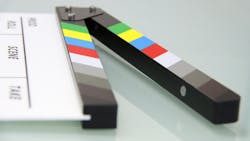If you were to take a good look at your shop’s interactions with your customers from an outsider’s perspective, you would undoubtedly be amazed at the many common, everyday practices that occur that actually decrease your chances of successfully achieving the result we all want: A happy customer, a great ticket and fast service every time.
Most lube shops get the basics right: Car comes in the back, oil change gets done, some other fluids and stuff are checked, money is collected and the customer leaves out the front.
Believe it or not, this is the totality of what some shops consider their required process! I have heard from many shop owners things like:
“Our customers here are great, we generally let them just kind of tell us what they want, no high-pressure tactics.”
“My techs have been doing this for years, I let them conduct their service and presentations in the way that makes them most comfortable.”
“We don’t “push” here…our menu is clearly posted and if the customers want to buy something extra they will ask for it.”
“This is a ____________ neighborhood; the customers around here just don’t have much money to spend.”
If you or your shop manager has ever used any of those statements or any like them in a serious argument about their shops performance, then you need some personnel change, stat!
The simple truth is hard to believe and sounds counter-intuitive, but the fact is most customers only think they know what they want. They do not. If you ask them, most of them will all generally say “just an oil change, nothing else.” If you were then do what they asked for, just an oil change, how many of them do you think would then ask if you were going to check their tires? Or if you could just “throw a little washer solvent in there for me, ok?”
Leave it up to your customers; let them decide what they want and how to best complete the service and you will have unhappy customers, low tickets, eventually low car counts and an overall miserable experience.
It’s Entertainment!
I have been teaching this concept for years: It’s not about the oil change; it’s about the “entertainment value” your customer gets from the visit to your shop. First of all, what is the definition of entertainment? In its most basic definition, entertainment is described as: Exposure and/or interaction to events that is pleasing to one or more of the five senses.
Do you think that your typical customer would say that their last visit to your shop was a “pleasing interaction to his senses?” Or, is it possible they may say, “I needed an oil change, and the coupon for this place was the best deal.”
Personally, I ascribe to the notion that it is all about the entertainment factor for the customer that makes the difference. It’s not the oil and filter I use on their cars, that’s for sure! They can get that stuff anywhere!
In the feature-film industry, everything is geared towards one single goal: get the viewer into the seat at the theatre. Everything is designed to make that movie-theatre seat the best overall place to watch the movie, right?
Big, comfy, reclining rocker seats, awesome sound system, snacks and drinks available…the perfect set-up to watch a great movie.
However, that does not guarantee success, right? What if the movie stinks? Then it is a lot of wasted effort and money, which leads to disappointing returns from production costs.
Clearly, the “entertainment factor”— the movie— has to be good too. Your shop is no different. You should have every goal with respect to your customers have the same focus: to get them into that big, comfy movie chair, which in your case is them sitting in the driver’s seat of their car, in your bay while you are performing an oil change for them.
Once they are there, the “movie” can begin (The movie of course, being your service presentation)!
If you let the audience tell you what they want in a movie, then you will get answers like: “explosions, car chases, werewolves, pirates, space aliens, etc…” And then you will end up with a typical summer-time big-scale movie that costs a lot of money to make, rakes in the money for a few weeks, and then disappears into DVD-rental world forever, probably never to be watched again by most people.
Your movie moment
The comparison to your shop would be a great looking building, nice clean employees and some awesome coupons available to everyone in your area. Sounds good so far, right? You would probably do well for a while, but with nothing to bring them back, what was all the effort for?
With no compelling story, no entertainment factor for the audience to latch onto, there is nothing to keep it in their collective consciousness once they have left the theatre. The best movies, the ones that are remembered over the years as the “classics” all have one thing in common: A great, compelling story. And great people are what make a great story. Awesome special effects only enhance a great story, but they cannot effectively take the place of a great story.
No, instead of the one-time summer blockbuster movie approach, I use the smaller low-budget movie approach. The one that relies on great storytelling, great acting and great direction. The kind that gets such a satisfying response from the viewer that they want to see it again and they tell all their friends to see it also. Lots of steady, repeat business.
Some of you may still be lucky enough to experience those great 100-plus car days every now and again, but those days are gone for most of us. A nice steady stream of customers every day, many coming from referrals and repeat customers will give you the consistent day-to-day car counts that you need to prosper in today’s fast-lube world.
My shops have never been blockbusters since the day I opened them a few years ago, and I don’t really think they were ever block-buster locations.
However, with a lot of hard work and diligence 30-40 cars days are typical, and a 50+ car day is not too uncommon.
One thing is certain: Oil and a filter are NOT the elements of a great story for your customers, they are only The “MacGuffin.”
The “MacGuffin”
The “MacGuffin” has long been described as the story element that drives the viewer to the end of the film. Most often, the MacGuffin is not even fully revealed as to what it exactly is, and it will typically have little or nothing to do with the ultimate outcome of the story.
In a spy movie, the “MacGuffin” is the “papers”. In a pirate movie, the “MacGuffin” is the “treasure chest”. In the story of your lube shop, the “MacGuffin” is the oil and the filter. They didn’t come specifically to you for that, they can get those things anywhere, right? They came to you for the “story”
The story of your lube-shop is basically your presentation to your customers, and as the manager or owner, you are the director of this story. Once you have your customers in the seat, how are you going to tell your story? Are you going to just have the actors (techs) read the lines with no personality? Or, will you practice beforehand so they know just what to say, how to say it with believability and conviction, and know just when to use the proper timing to say it when it will be most effective?
And the best actors in the world are useless without a script. With no fabulous words to say, what is the point of hiring actors? Great actors don’t “wing it” or ad-lib very much, they have scripts to follow.Great actors are the results of great directors. Be a great director, and tell a great story to your customers.
Be sure to make it happen, and see ya’ in the movies!





